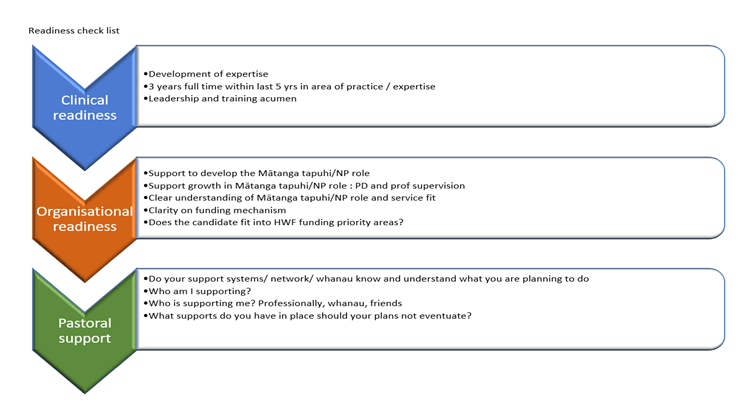Candidate Timeline
Download
12-24 months pre NP Training (practicum)
6-12 months pre NP Training
What will it cost?
The Ministry of Health now funds the NP training year as a national programme each year.
How did you organise funding for your NP training year?
How did you organise NP training year Funding?
| Funding to support NP training year | Amount per trainee per year |
|---|---|
| 500 hours of clinical release time | $15,000 |
| clinical supervision allowance at the main placement | $5,600 |
| Study day release time to attend a minimum of 12 study days/year | $3,000 |
| Course fees for 60 credits | Fully paid (fees vary per university) |
| Travel and accommodation to study days and to secondary placement experience | Discretionary contribution, depending on trainee's location. |
3-6 months pre NP Training
What support did you need from your family / whanau?
What support did you need from your family / whanau?
Note this year spend time with NPs in practice and networking; Link with local NP networks
First year as an NP: Consolidation and transition
0-12 Months
- Remember imposter syndrome/ organisational socialisation in role transition
- Transition and role confusion
- Making sure your manager/ clinical supervisor introduce you to the whole team. It is important they convey the importance of your role and that it is seen to be valued.
- Keep connected with support systems
- Link with NPNZ and local Mātanga tapuhi/NP networks
RN-NP Transition Imposter phenomenon post NP training year
Was it worth it? Post NP training year
Was it worth it? Post NP training year

